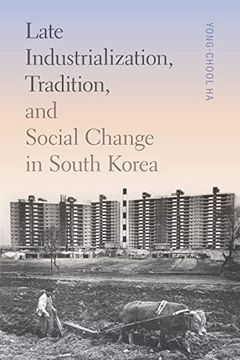Share
Late Industrialization, Tradition, and Social Change in South Korea (Korean Studies of the Henry m. Jackson School of International Studies) (in English)
Yong-Chool Ha (Author) Clark W. Sorensen (Series Editor) (Author)
·
University Of Washington Press
· Paperback
Late Industrialization, Tradition, and Social Change in South Korea (Korean Studies of the Henry m. Jackson School of International Studies) (in English) - Yong-Chool Ha (Author) Clark W. Sorensen (Series Editor)
$ 34.74
$ 43.43
You save: $ 8.69
Choose the list to add your product or create one New List
✓ Product added successfully to the Wishlist.
Go to My WishlistsIt will be shipped from our warehouse between
Monday, June 17 and
Tuesday, June 18.
You will receive it anywhere in United States between 1 and 3 business days after shipment.
Synopsis "Late Industrialization, Tradition, and Social Change in South Korea (Korean Studies of the Henry m. Jackson School of International Studies) (in English)"
South Korea's rapid industrialization occurred with the rise of powerful chaebǒl (family-owned business conglomerates) that controlled vast swaths of the nation's economy. Leader Park Chung Hee's sense of backwardness and urgency led him to rely on familial, school, and regional ties to expedite the economic transformation. Late Industrialization, Tradition, and Social Change in South Korea elucidates how a country can progress economically while relying on traditional social structures that usually fragment political and economic vitality. The book proposes a new framework for macro social change under late industrialization by analyzing the specific process of interactions between economic tasks and tradition through the state's mediation.Drawing on interviews with bureaucrats in the Ministry of Commerce and Industry as well as workers and others, Yong-Chool Ha demonstrates how the state propelled industrialization by using kinship networks to channel investments and capital into chaebǒl corporations. What Ha calls "neofamilism" was the central force behind South Korea's economic transformation as the state used preindustrial social patterns to facilitate industrialization. Ha's account of bureaucracy, democratization, and the middle class challenges assumptions about the universal outcomes of industrialization.
- 0% (0)
- 0% (0)
- 0% (0)
- 0% (0)
- 0% (0)
All books in our catalog are Original.
The book is written in English.
The binding of this edition is Paperback.
✓ Producto agregado correctamente al carro, Ir a Pagar.

